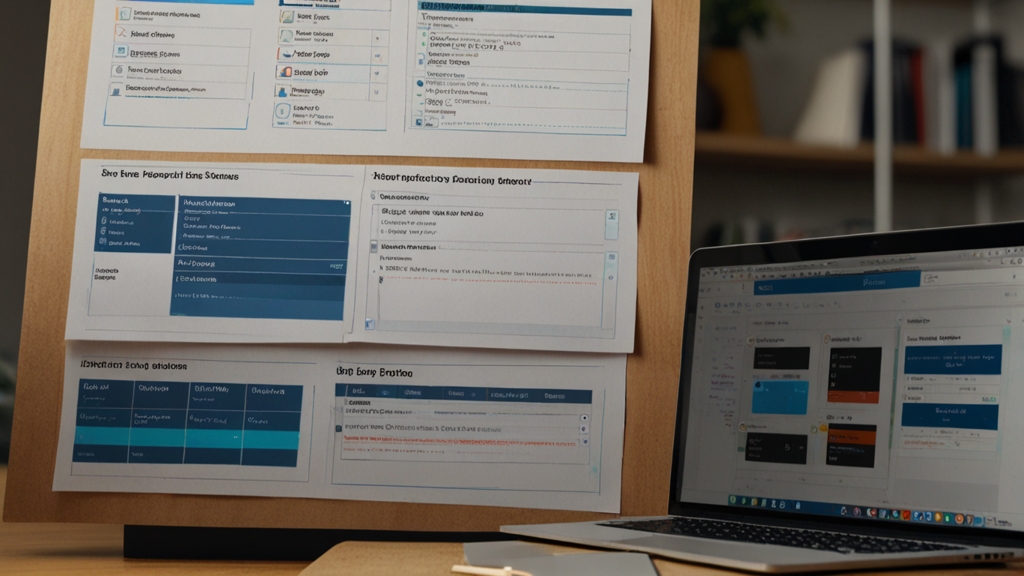The Role of Emotional Intelligence in Enhancing Your Productivity
In today’s fast-paced world, productivity is more important than ever. Yet, despite the plethora of tools and strategies available to boost efficiency, many individuals and organizations struggle to achieve their maximum potential. One powerful, yet often overlooked, factor that can significantly enhance productivity is emotional intelligence (EI). Emotional intelligence, the ability to understand and manage your own emotions and those of others, plays a crucial role in personal and professional success. This article delves into how emotional intelligence can enhance your productivity.
Understanding Emotional Intelligence
Emotional intelligence comprises several key components: self-awareness, self-regulation, motivation, empathy, and social skills. Self-awareness involves recognizing your own emotions and their effects. Self-regulation is the ability to control or redirect disruptive emotions and impulses. Motivation encompasses the drive to pursue goals with energy and persistence. Empathy is the ability to understand and share the feelings of others, and social skills involve managing relationships to move people in desired directions.
Self-Awareness and Productivity
Self-awareness is the cornerstone of emotional intelligence. When you are aware of your emotions, you can manage your reactions better, which leads to more thoughtful decision-making. For instance, recognizing when you’re stressed can prompt you to take a break, thereby preventing burnout and maintaining productivity. Self-awareness also allows you to identify your strengths and weaknesses, enabling you to focus on areas where you can be most effective.
"Knowing yourself is the beginning of all wisdom." - Aristotle
Self-Regulation and Time Management
Self-regulation helps you manage your time and tasks more effectively. By controlling impulses and managing emotions, you can stay focused on your work without being sidetracked by negative emotions or conflicts. This regulation extends to managing stress, which is essential for maintaining productivity. Techniques such as deep breathing, mindfulness, and setting boundaries can be incredibly valuable tools for nurturing self-regulation.
For example, if a colleague's behavior frustrates you, rather than immediately reacting, emotional intelligence teaches you to take a step back, assess the situation, and respond thoughtfully. This approach not only preserves relationships but also ensures that your energy remains focused on productive tasks.
Motivation and Goal Achievement
Motivation is a key driver of productivity. Individuals with high emotional intelligence have a greater intrinsic motivation that doesn't wane easily. This internal drive helps them stay committed to their goals, even when faced with obstacles. Furthermore, emotionally intelligent individuals tend to set more realistic and challenging goals, which is vital for sustained productivity.
"The only way to do great work is to love what you do." - Steve Jobs
Empathy and Team Collaboration
Empathy enhances productivity by fostering better teamwork and communication. Understanding and addressing the emotions of your colleagues creates a supportive work environment where everyone feels valued and motivated. This leads to better collaboration, fewer conflicts, and a more cohesive team effort.
For instance, if a team member is struggling with their workload, an empathetic leader or colleague can offer support or redistribute tasks to ensure deadlines are met without causing undue stress. A collaborative and empathetic work culture ultimately leads to higher productivity for all team members.
Social Skills and Leadership
Emotionally intelligent individuals often possess strong social skills, which are indispensable for leadership roles. Effective leaders can inspire, guide, and influence their teams, driving collective productivity. Their ability to communicate clearly, resolve conflicts, and build strong relationships translates into a more motivated and efficient workforce.
Moreover, leaders with high emotional intelligence are adept at recognizing the emotional needs of their teams, providing the necessary support and encouragement to keep everyone engaged and productive.
Conclusion
Emotional intelligence is a powerful tool for enhancing productivity, both on an individual and organizational level. By fostering self-awareness, self-regulation, motivation, empathy, and social skills, emotional intelligence helps individuals and teams navigate the complexities of the workplace with greater efficiency and harmony. Embracing and developing emotional intelligence can lead to a more productive, fulfilling, and successful professional life.
"You can't always control what goes on outside, but you can always control what goes on inside." - Wayne Dyer
As the importance of emotional intelligence continues to gain recognition, investing time and effort in cultivating these skills will undoubtedly pay off in increased productivity and overall well-being.









